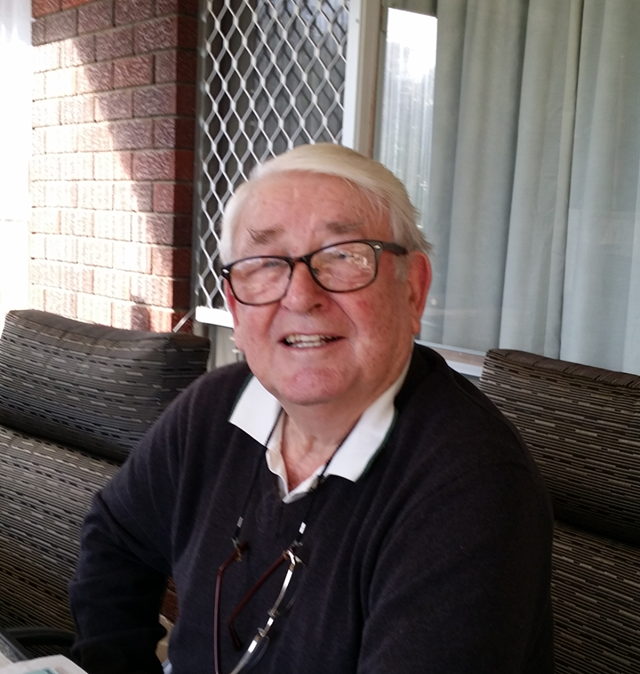Grandad died after hospital medics failed to spot stroke symptoms
‘The whole experience with the hospital has been absolutely dreadful’ says Sandra Harding, wife of David who died in 2019

Your support helps us to tell the story
From reproductive rights to climate change to Big Tech, The Independent is on the ground when the story is developing. Whether it's investigating the financials of Elon Musk's pro-Trump PAC or producing our latest documentary, 'The A Word', which shines a light on the American women fighting for reproductive rights, we know how important it is to parse out the facts from the messaging.
At such a critical moment in US history, we need reporters on the ground. Your donation allows us to keep sending journalists to speak to both sides of the story.
The Independent is trusted by Americans across the entire political spectrum. And unlike many other quality news outlets, we choose not to lock Americans out of our reporting and analysis with paywalls. We believe quality journalism should be available to everyone, paid for by those who can afford it.
Your support makes all the difference.A “fit and well” 81-year old died following “inadequate” care at an NHS hospital where doctors failed to spot he had suffered a stroke, a parliament watchdog has warned
David Harding, who had travelled to England from Australia, died after A&E doctors failed to act on information from paramedics and nurses and did not order a brain scan until it was too late.
Mr Harding was taken to Pinderfield Hospitals, run by Mid Yorkshire Teaching NHS Trust in May 2019 and waited for 19 hours in a ward before being seen by a doctor, five hours more than he should have, according to the Parliamentary Health Services Ombudsman.
In a report today, the PHSO said hospital doctors did not note paramedics’ warnings that Mr Harding had felt unable to walk and had a left-sided headache and on walking to the ambulance “leaned to one side.” Nurses also noted his reaction to sunlight but this was not followed up.
The PHSO said: “There is no evidence the doctor that saw Mr Harding in A&E considered any accounts from the family or the circumstances of his collapse as the nurse in the emergency department noted. There is also no evidence the doctor read records from the ambulance service which also referred to his headaches and reaction to light.”
Following an investigation, the PHSO “doctors who treated him failed in their care.”
Although the Ombudsman could not rule his death was avoidable its investigation found “he was denied the opportunity for treatment that could have led to his survival.”
The Ombudsman also said staff did not keep Mr Harding’s family informed about the seriousness of his condition which meant they couldn’t “say goodbye” while he was conscious.
Mr Harding was a pit worker in Doncaster and served three years in the army before leaving with his wife, Sandra, in 1971 to live in Australia.
His wife said :“David was fit and well before we left Australia. The day before he became ill, he had been watching his favourite football teams Leeds United and West Coast Eagles.
“The next morning, I found him on his knees holding his head and called the ambulance. The whole experience with the hospital has been absolutely dreadful. It’s something you can’t comprehend until it happens to you…
“I wake up at 3am and it’s the first thing I think of. I’m always thinking about it. It has really taken its toll. I’ve lost 16 kilograms through stress. I will never forget what happened.”
She said she complained to the Ombudsman because no one from the hospital was talking to the family about what went wrong after her husband’s death.
Ombudsman Rob Behrens said, “David’s family have gone through an incredibly distressing ordeal and, moreover, been left uncertain about whether their husband and father could have survived if his care had been different. When things go wrong with someone’s medical care, they need to be recognised and addressed, and action must be taken to make sure it does not happen again.”
The Trust has complied with all these actions.
Richard Robinson, chief medical officer at Mid Yorkshire Teaching NHS Trust, said “We offer our sincere condolences to Mrs Harding and her family for the loss of David.
“Ensuring our patients receive the best possible care is our priority. We acknowledge that the care provided to David did not meet the standards expected. Actions have been put in place to make improvements.”

Join our commenting forum
Join thought-provoking conversations, follow other Independent readers and see their replies
Comments